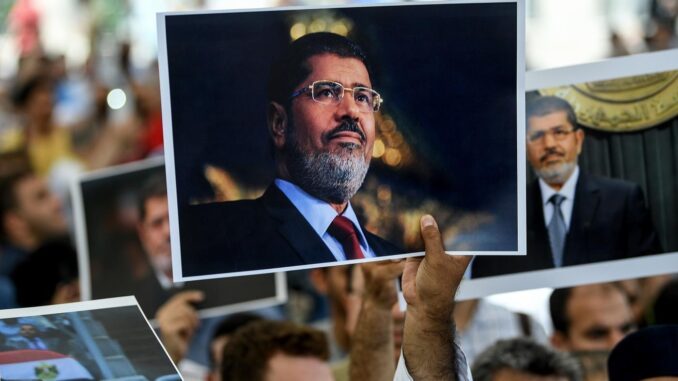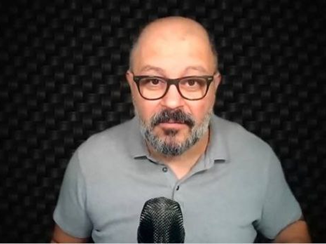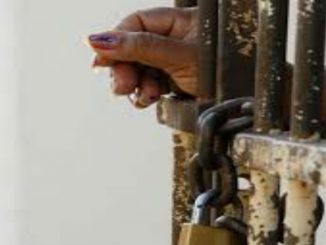
The first anniversary of the passing of late Egyptian President Mohamed Morsi is an occasion for reflection and soul searching. It evokes memories of his life and times, which culminated as Egypt’s first democratically elected civilian president.
A new non-profit organization has been founded in late president’s name with the aim to raise awareness of the importance of calling for free and fair democracy
A number of activists and public figures have marked the one-year anniversary of the death of President Mohamed Morsi, Egypt’s first and only freely elected leader.
Morsi died after collapsing in court during a session in one of his politicized trials on trumped-up charges.
He came to power following the 2011 popular revolution that toppled longtime autocrat Hosni Mubarak. The academic and engineer rose to seniority in Egypt’s Muslim Brotherhood before winning the 2012 presidential election as his group’s candidate.
A London-based non-profit organization has been set up on the anniversary of Morsi’s death.
According to the Morsi Foundation for Democracy’s website, the organisation aims to raise awareness of the importance of calling for free and fair democracy and creating platforms for engagement on social justice issues.
Morsi was one of tens of thousands of Egyptians detained by the government of President Abdel Fattah el-Sisi, Morsi’s defense minister who deposed him in a 2013 military coup.
Activists and human rights defenders have criticized the conditions in which detainees in Egypt have been held. UN independent experts concluded that he was held under “brutal” conditions that contributed to his death and could amount to a state-sanctioned arbitrary killing.
The experts also warned that thousands of more prisoners in Egypt were enduring similar conditions and their “health and lives” may also be at severe risk.
Morsi was buried in a service attended by only his closest family. Burial in his Nile Delta hometown of Sharqiya was denied. In contrast, Mubarak was buried with state honors in a huge ceremony in February.
No investigation into Morsi’s death has been carried out.
Abdullah El Sherif, the popular host of a political satire YouTube show and an outspoken critic of Sisi’s government, took to social media to mark the anniversary.
Translation: May God have mercy on those who do not tolerate injustice and people who do not come down on those who express opinions on corruption, and those who fought it with patience. May God have mercy on you, who was loyal to your nation, and curses on those who mistreated you and increased torture.
In March 2018, a panel of British politicians and lawyers warned that Morsi’s prison conditions were poor and could lead to his early death.
The panel, which had been convened at the request of Morsi’s family, said he had been “receiving inadequate medical care, particularly inadequate management of his diabetes and inadequate management of his liver disease”.
Many social media users have used the anniversary to highlight prison conditions in Egypt.
Translation: The first anniversary of the death of Mohammed Morsi – he was subjected to an unfair trial and inhumane prison conditions, deprived of medical care and communicating with his family and lawyers.
Human rights groups estimate that Sisi’s government has jailed as many as 60,000 dissidents since the 2013 coup against Morsi, led by the then-defense minister.
Palestine remembers Morsi
![Palestinians receive condolences for the death of Egypt's former president Mohammed Morsi, in Khan Younis in the southern Gaza Strip on 19 June 2019. [Ashraf Amra/Apaimages]](https://i0.wp.com/www.middleeastmonitor.com/wp-content/uploads/2020/06/190619_ASH_00-5.jpg?resize=1200%2C800&quality=85&strip=all&ssl=1)
During Morsi’s inauguration address at Cairo University on 30 June 2012: “I announce from here that Egypt, its people and presidential institution stand with the Palestinian people until they regain all their rights.”
It must be recalled that after its signing of the Camp David Treaty in 1979, Egypt’s policy towards the conflict changed from being a supporter of Palestine to becoming a mediator between Israel and the Palestinian people.
Morsi was determined to reset his country’s orientation to one of active support, not for a ‘self-governing authority’ and ‘autonomy’ in the West Bank and Gaza Strip, but the attainment of an independent sovereign Palestinian state with Jerusalem as its capital and the right of the refugees to return.
Regionally, one of the foremost challenges which the Morsi presidency faced was how to ease the hardship of the population of Gaza who have been blockaded by Israel since 2007.
Throughout this period, the Mubarak regime collaborated faithfully with Israel to maintain the cruel siege. In February 2008, his last foreign minister, Ahmed Aboul Gheit, infamously warned in a statement carried by the state-run Middle East News Agency (MENA) that “Whoever breaks the border line will have his foot broken.”
In order to end the misery of Gaza’s 1.7 million population, the Morsi government recognized that the Rafah Crossing had to be opened permanently for the free movement of people and goods. They wasted no time in accelerating this process.
The new administration in Cairo quickly set about reversing the diplomatic isolation which Israel and the Mubarak regime had enforced. Foreign heads of state, ministers and international solidarity workers soon flocked to Gaza to render technical assistance and help in reconstruction projects.
In October 2012, Qatar’s Emir Tamir bin Hamad Al Thani crossed into the enclave from Egypt; he was the first regional leader to do so since the visit by King Hussein of Jordan in 1999.
Shortly after, during the Israeli assault on Gaza in November, Morsi warned:
“I tell them in the name of all the Egyptian people that the Egypt of today is not the Egypt of yesterday and that the Arabs of today are different than the Arabs of yesterday.”
In a show of calculated defiance and solidarity with the people of Gaza, Morsi sent his Prime Minister Hesham Qandil to the enclave that month. He was the first and highest ranking Egyptian official to enter the Gaza Strip since the Israeli occupation began in 1967. That visit was followed by an Arab League delegation which included Turkey’s Foreign Minister Ahmet Davutoglu. In January 2013, Egypt also facilitated a visit to Gaza by then Malaysian Prime Minister Najib Razak.
Notwithstanding their political importance, all these visits concluded with significant economic aid to the territory.
Normalization and resistance
To understand the decisions Morsi took and the price he paid for doing so, it must be recalled that long before the 25 January uprising, he was well-known for his support of Palestine. In fact, he was a founding member of the Egypt Council for Resistance Against the Zionist Project.
It is no coincidence, therefore, that the countries which bankrolled the military coup that toppled Morsi – the UAE and Saudi Arabia – are the same ones which today are leading the Arab campaign to normalise relations with Israel.
Morsi was clearly an undesirable obstacle to their plan.
Yet, as far as he was concerned, the Palestinian people had a right to resist the occupation, as long as they acted in accordance with international conventions and human rights law. For this reason, he encouraged the Palestinian factions to unite.
For Morsi, Palestinian reconciliation and unity was fundamental for the renewal of their national project. Furthermore, he was convinced that it would help insulate the Palestinian leadership from Israeli and American pressure in their decision-making.
Unsurprisingly, it took the Morsi administration just three months to broker the Fatah-Hamas Cairo Agreement in October 2012. That agreement was designed to ensure the reformation of the PLO, inclusion of all factions in its ranks, adherence to democratic processes, and representation for all Palestinians, including the refugees.
Neither Israel or its regional and international backers welcomed the agreement.
Throughout his term as President of Egypt, Morsi never pressured the PLO and Abbas to engage in the futile cycle of negotiations with Israel as his predecessor and successor have done. He knew it was a waste of time because of Israel’s deception and refusal to end its settlement expansion.
At the same time, Morsi urged the Palestinian Authority not to bow to Israeli pressure to undermine or obstruct the resistance. Whereas the Mubarak regime had negotiated, unsuccessfully, for five years to secure the release of the captured Israeli soldier, Gilad Shalit, it was under the auspices of Morsi’s government that an exchange deal was struck; resulting in the release of 1,027 Palestinian detainees from Israeli jails.
After the July 2013 coup many of the released prisoners were rearrested without a whimper of protest from the Sisi regime.
On the first anniversary of Mohamed Morsi’s passing, many Palestinians quite rightly imagine what their reality would have looked like today if he was still here. Would the Gaza Strip still be under Israeli-Egyptian lockdown? Would Israel have dared to contemplate annexing the West Bank and Jerusalem?
All of these were anathema to Morsi and it was for this reason and others Israel and its Arab collaborators conspired to topple him.



